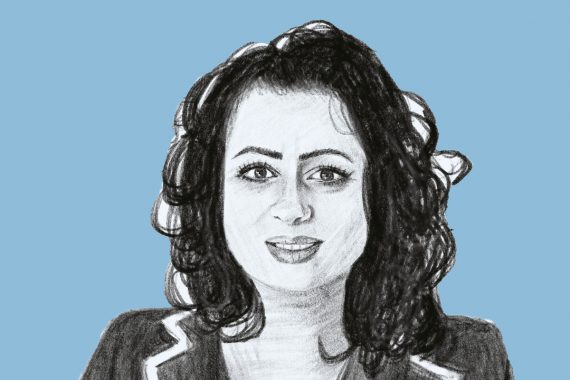Nobody should be left behind

It’s 50 years since GP Julian Tudor Hart published his paper on the Inverse Care Law where those who most need medical care are least likely to receive it and it’s more than a decade since The Marmot Review on reducing health inequalities. Here in 2021, the pandemic has been a brutal reminder of why nobody should be left behind when it comes to healthcare.
When the call went out to primary care to set up vaccination sites to protect our population from this pernicious virus, PCNs didn’t hesitate. The speed and efficiency in which this happened was breath taking. Primary care was always going to be well placed to reach out to our communities as we know them best.
But we have never done anything of this magnitude and in such short timescales. We have seen some fantastic outreach work, collaborating with local authorities, the voluntary sector and local businesses to go where our diverse communities are and give them the facts and reassurance that getting the vaccine is the right thing to do.
Despite the many logistical challenges of the vaccine deployment, general practice teams quickly reached out to more than 10,000 care homes to offer them the vaccine and likewise housebound patients. By the start of April, almost 29 million people, including those aged 50 and over, care home residents and staff, the extremely clinically vulnerable and NHS staff had been vaccinated.
But as we knew from the start, increasing vaccine confidence and reaching those most vulnerable to the virus, including people from ethnically diverse communities, was never going to be straightforward.
However, the innovation and determination in primary care has shone through with vaccination sites opening in mosques, temples, churches and synagogues up and down the country.
The Alliance for Better Care in East Surrey, Crawley, Horsham and Mid-Sussex worked with a local bus company to convert a bus into a mobile vaccination unit in order to reach vulnerable patients. It’s first stop was the Apple Tree Centre temple in Crawley, vaccinating more than 100 people on the first day.
Brownlow Homeless Team and Liverpool Central Primary Care Network worked together to go into hostels and hotels used for emergency accommodation reaching people experiencing homelessness or otherwise vulnerable residents (with a drug and alcohol misuse background in rehabilitation) to offer them the vaccine. These are people who are notoriously difficult to serve with healthcare and is one of the reasons why we launched the GP access cards to help explain that everyone has a right to register with a GP. The access cards allow people with no fixed address or identification to communicate their right to care.
People with learning disabilities were also high priority for the Covid vaccine but it has previously been difficult to ensure uptake of vaccinations within this often underserved cohort. Healthier South Wirral Primary Care Network tackled this challenge head on by setting up a dedicated clinic for patients with learning disabilities and/or autism. Pre-appointment contact with patients followed a more personalised approach with longer telephone and face-to-face conversations with patients, carers and families to discuss and manage any concerns and fears. A series of reasonable adjustments were made including giving patients sweets, letting them bring people or objects (e.g. a doll) to make them feel safe, allowing them to explore the facilities and having the Learning Disability team on hand to support both patients and staff who were unsure of any aspect of care provision for individuals with learning disabilities. In addition, patients were informed of the importance of regular NHS health checks. Carers were also offered a vaccine if they had not been vaccinated.
These are just some of the hundreds of examples of where primary care has gone that extra mile to ensure nobody is left behind. Now we need to build on this innovation and partnership working to really turn the tide on health inequalities. We cannot do it alone, but general practice sits at the heart of our communities so let’s make 2021 the year we really begin to reverse Julian Tudor Hart’s Care Law.
Dr Nikki Kanani is NHS England medical director for primary care and a GP in south London. This piece is part of Pulse PCN
Pulse October survey
Take our July 2025 survey to potentially win £1.000 worth of tokens

Related Articles
READERS' COMMENTS [2]
Please note, only GPs are permitted to add comments to articles













A deeper understanding of the Inverse Care Law and what the ingredients for its existence are would provide a better more enduring remedy.
The great pop-artist Andy Warhol when asked to describe himself relied ‘..im deeply superficial..’ ; true depth is a requisite for understanding.
I would direct you towards the business model[s] of provision as an initial undertaking in order to bake your cake.
Why would a sessional GP stand by a vague, blubbering, regurgitating Prime Minister on 20/04/21 and say that the vaccine offers “complete protection”?! Repeatedly. Mind-boggling. And an observatory comment: paradoxically, doctors feel “left behind”, with the “tide” on them. Goodwill and dedication confers zero value to podium dwellers, “disabled” with their “concerns and fears”. General Practice may have a “heart” but “pernicious” entities threaten it. Your “access card” is world renowned and not new. You can be illegal, with no ID, and no address and pick up a complaints policy against a UK doctor who has worked for 50 years, caring for thousands of people. That makes complete sense. It’s a worldwide card, accessible to 8 billion people. Logistically sound. And yes, completely protected.